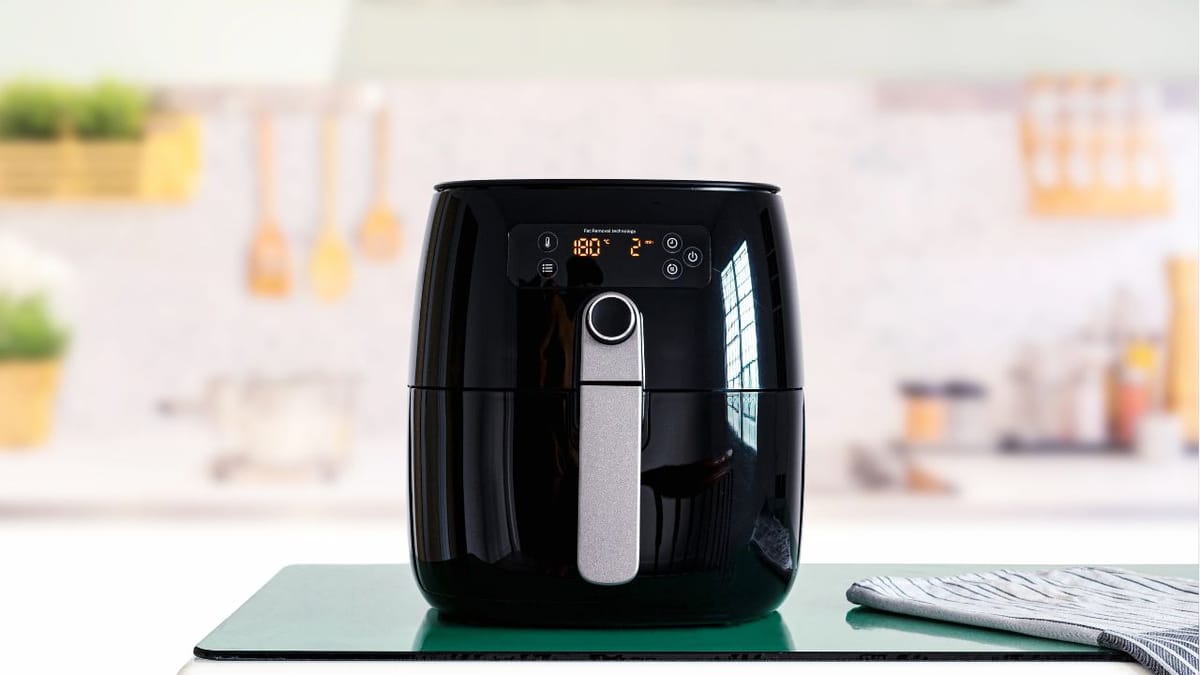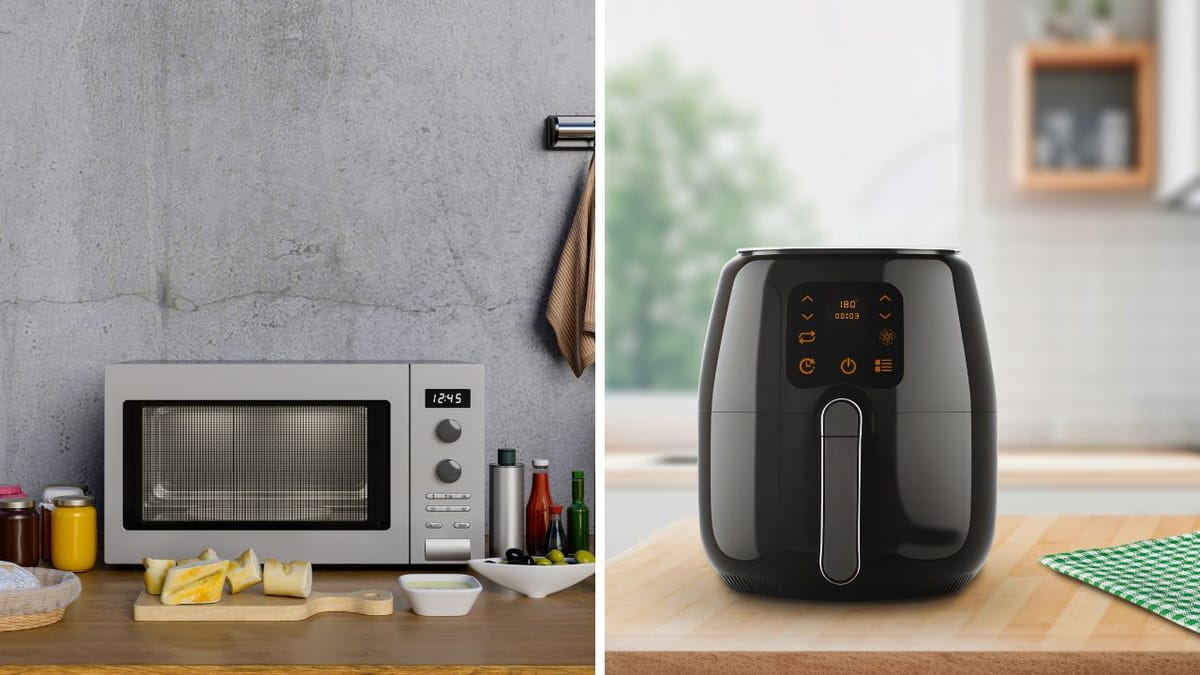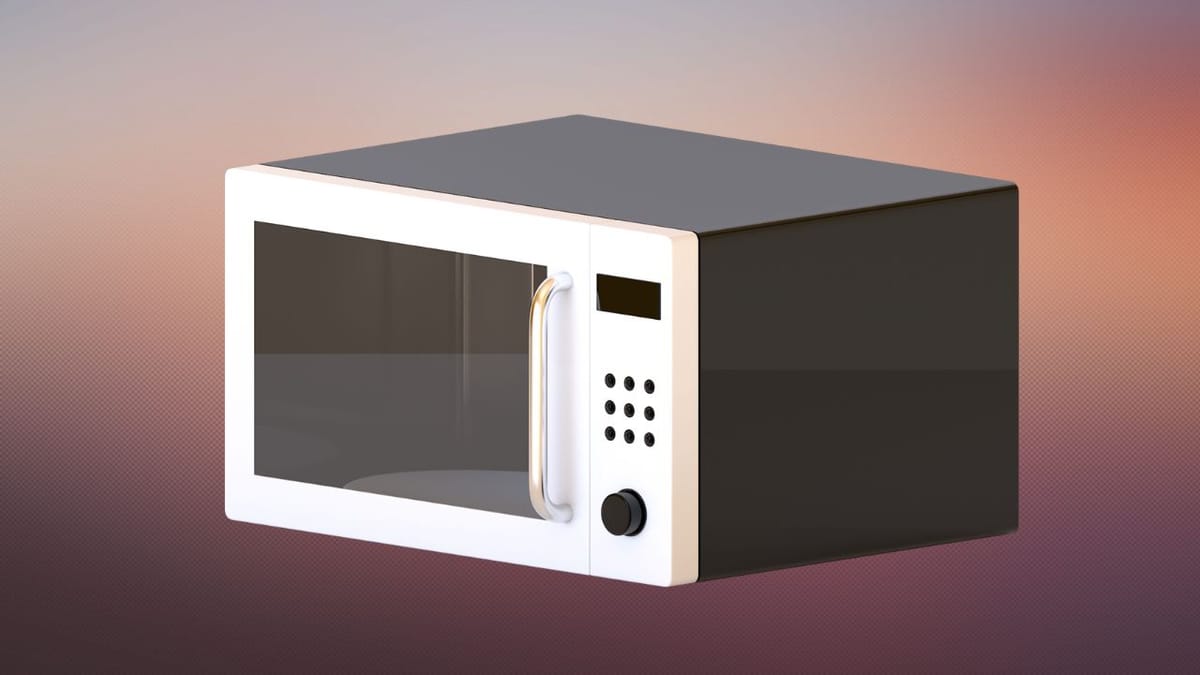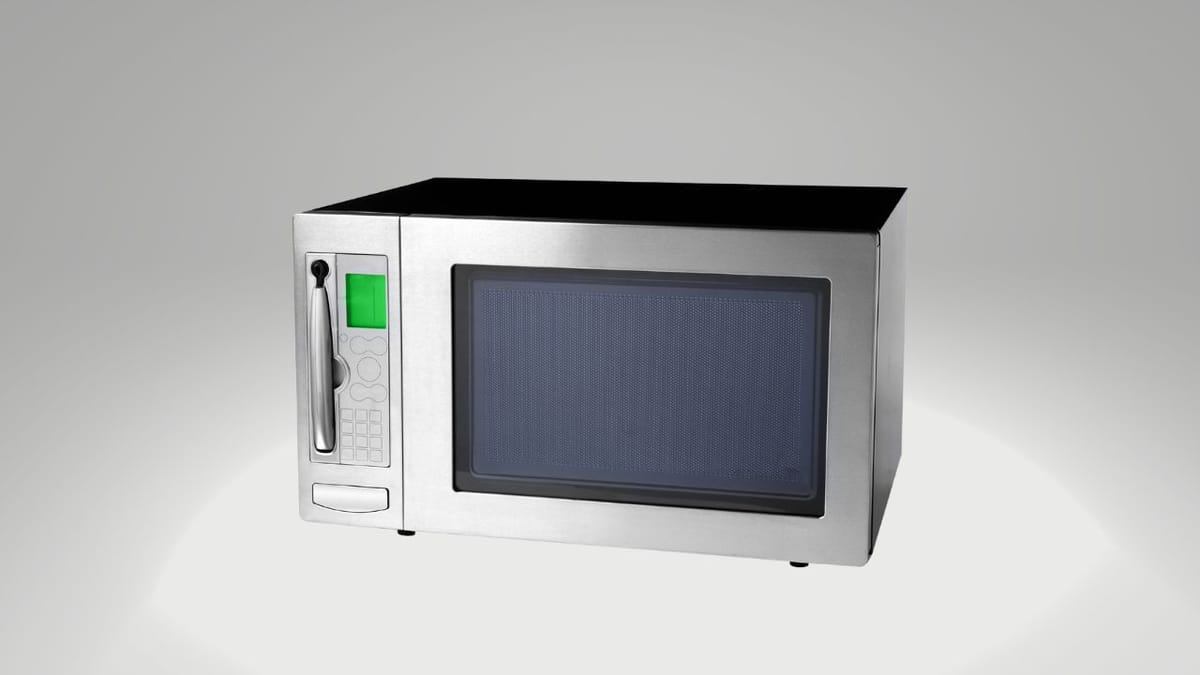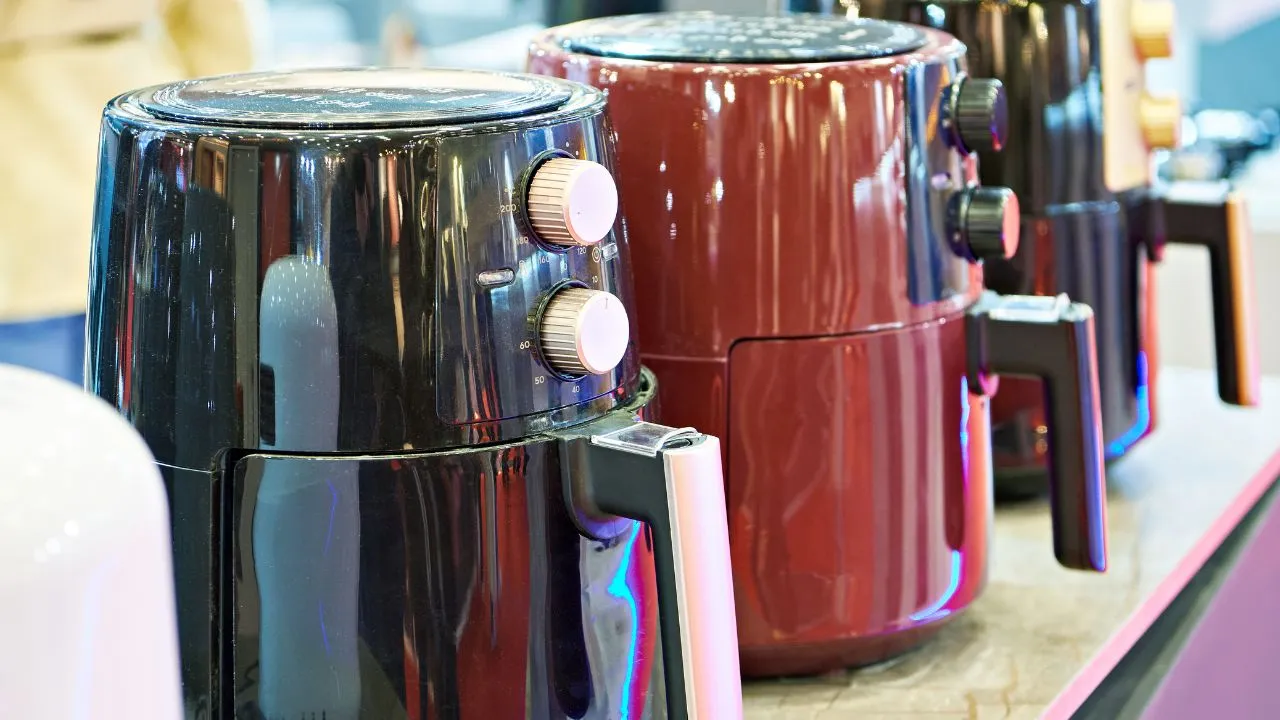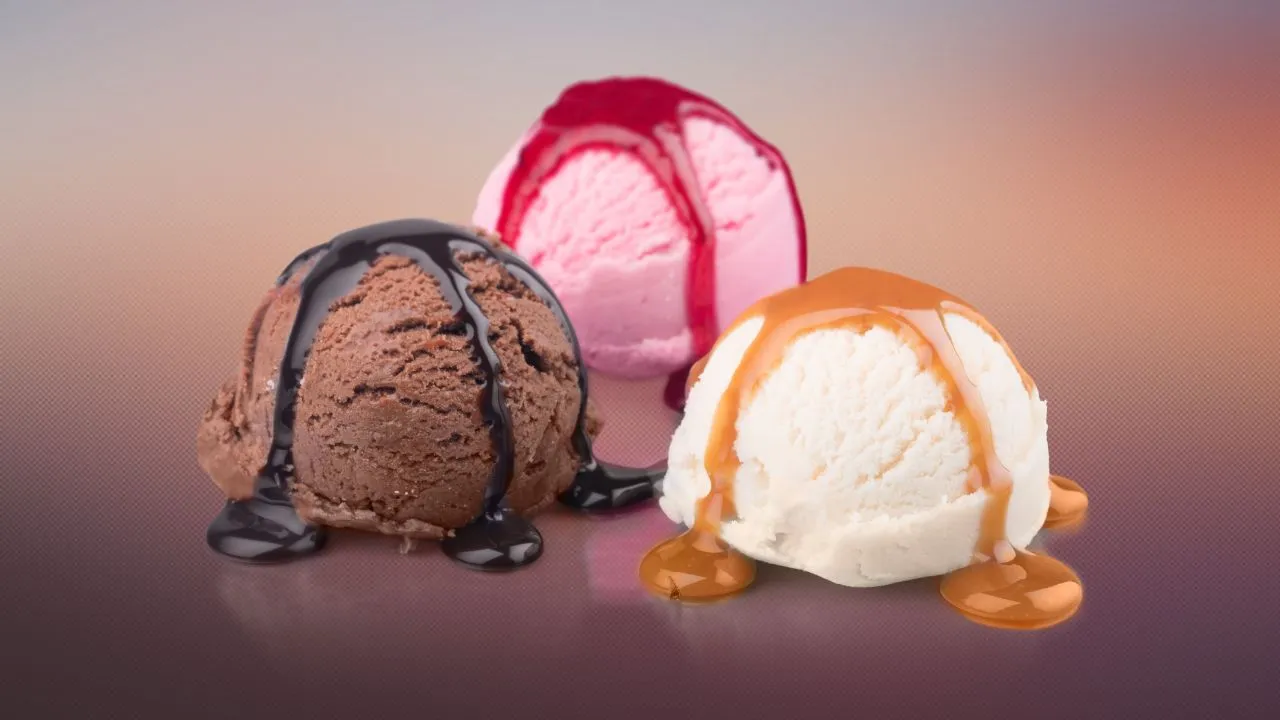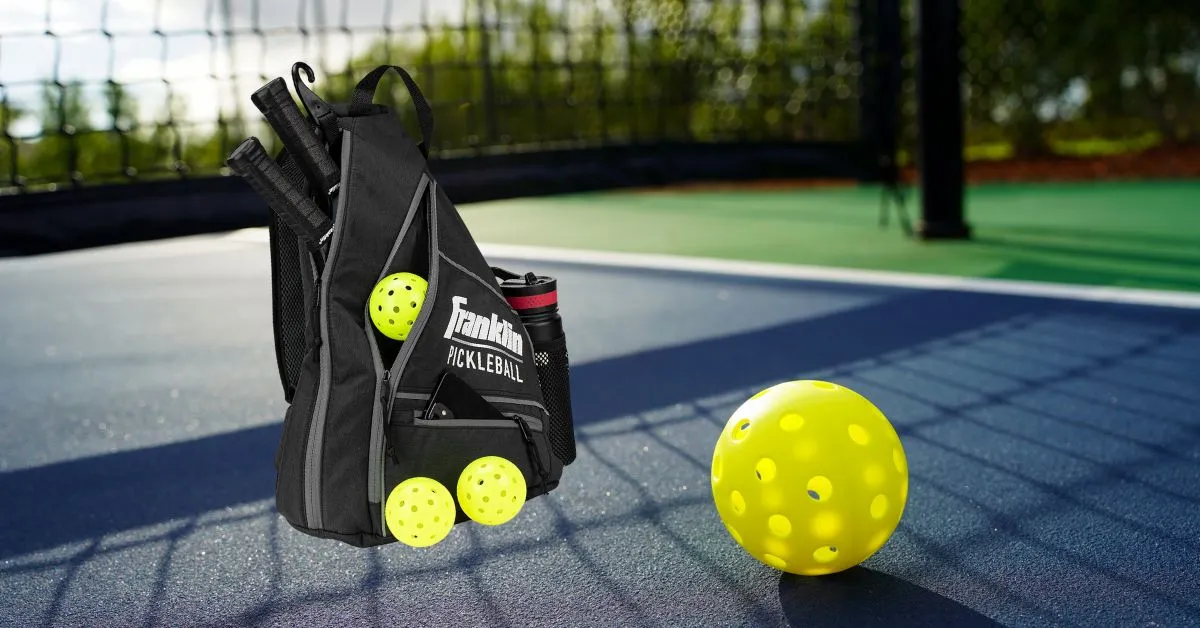Table of Contents
Air fryers have revolutionized the way we cook, offering a healthier alternative to traditional frying methods. However, as with any kitchen appliance, they come with their own set of drawbacks. In this conversational and informative article, we'll explore the disadvantages of air fryers, ensuring you have all the information you need to make an informed decision about incorporating this device into your cooking routine.
Key Takeaways:
- Air fryers may not always provide the same taste and texture as traditional frying.
- They can be more expensive than other cooking appliances and have size limitations.
- Air fryers require regular maintenance and may produce harmful compounds.
- Even with all these disadvantages, an air fryer is still a great kitchen appliance
With detailed and rigorous research, we provide our readers with the finest recommendations. Our recommendations are our opinions. Our cause is backed by reader support- for every click made through one of our affiliates links, a commission may be earned at no extra expense to you! As an Amazon Associate, Reviewsopedia may earn a commission from qualifying purchases. Thank you and enjoy!
1. Taste and Texture Differences
When it comes to fried food, taste and texture are king. Air fryers use hot air to cook food, which can lead to a different mouthfeel compared to oil-immersed counterparts. Some users report that foods don't have the same satisfying crunch or may taste drier. While many enjoy the results of air frying, traditionalists might find the difference notable enough to stick with their deep fryers.
Moreover, the absence of oil means that the unique flavor profiles created by oil-based cooking are missing. This can be particularly evident in dishes that rely on oil for a significant part of their taste, such as French fries or fried chicken.
2. Size and Capacity Constraints
Air fryers are compact, which is great for small kitchens, but this comes at the cost of cooking capacity. Preparing meals for a large family or a dinner party can be challenging as you may have to cook in batches. This not only takes more time but can also lead to inconsistent meal temperatures as you serve.
Additionally, the basket size of most air fryers limits the ability to cook larger items. For example, fitting a whole chicken or a sizeable batch of fries can be a struggle, which means you'll have to cut ingredients into smaller portions, potentially affecting the final dish.
3. Initial Cost and Energy Consumption
While air fryers are marketed as a cost-effective way to cook, the initial investment can be quite steep compared to conventional ovens or deep fryers. The price tag for a high-quality air fryer can be a barrier for some households. Furthermore, air fryers can consume a lot of electricity, especially when used frequently or for extended cooking sessions, which may lead to higher energy bills over time.
Despite their energy-efficient design, the cost of running an air fryer can add up. It's essential to consider whether the benefits of using an air fryer outweigh the potential increase in your monthly utility expenses.
4. Learning Curve and Cooking Times
Air fryers come with a learning curve. New users must get accustomed to cooking times and temperatures that differ from conventional methods. This can result in undercooked or overcooked meals as one gets used to the appliance. Patience and practice are required to master air frying, which might be a turn-off for those who prefer more straightforward cooking methods.
Moreover, while air fryers are often touted for their speed, not all foods cook faster than in a traditional oven. In fact, some items may take longer in an air fryer, especially when accounting for the preheating time and the need to cook in batches due to size constraints.
5. Regular Maintenance and Cleaning
Air fryers require regular maintenance to function correctly. The basket, tray, and interior need frequent cleaning to prevent food buildup and ensure hygienic cooking conditions. This can be a hassle, especially for busy individuals or those who dislike the chore of cleaning kitchen appliances.
The non-stick coating inside the basket is also prone to wear and tear. Over time, this can lead to food sticking and even the potential release of harmful chemicals if the coating starts to flake off, which brings us to the next point.
6. Potential Health Concerns
While air fryers reduce the amount of oil and fat in cooking, they are not without health concerns. High temperatures can cause the formation of acrylamide, a potential carcinogen found in starchy foods cooked at high heat. While the risk is lower compared to deep frying, it's still present.
Additionally, the non-stick coating that makes cleaning easier can, over time, start to degrade, especially if cleaned with abrasive materials or exposed to high heat regularly. This degradation can lead to particles mixing with your food, which is a health concern for many.
7. Limited Versatility
Air fryers are often marketed as multi-functional appliances capable of grilling, roasting, and baking. However, they may not always be the best tool for these tasks. The texture and taste of baked goods, for instance, can differ significantly from those prepared in a conventional oven. The forced air circulation can also affect how food cooks, sometimes leading to uneven results.
For those who enjoy experimenting with different cooking methods, an air fryer's capabilities might not be as versatile as expected, potentially necessitating additional appliances to achieve the desired culinary outcomes.
8. Noise and Odor Emission
Air fryers are not silent appliances. They emit a constant fan noise while in operation, which can be bothersome, especially in small or quiet spaces. The noise level varies between models, but it's something to consider if you're sensitive to sound or live in an environment where noise is a concern.
In addition to noise, air fryers can produce odors, especially when cooking foods with strong smells. Unlike deep fryers with closed lids, air fryers have open baskets that allow cooking smells to permeate the kitchen and surrounding areas.
9. Plastic Taste and Smell
Some air fryer users report a plastic-like taste or smell during the initial uses. This is often due to the manufacturing residues burning off and can be off-putting. While this usually dissipates after a few uses, it's essential to thoroughly clean the air fryer before the first use and possibly run it empty a few times to minimize this issue.
The presence of this plastic odor can also raise concerns about the materials used in the construction of the air fryer and whether they are entirely safe for cooking and food preparation.
10. Environmental Impact
Lastly, the environmental impact of air fryers is worth considering. They are often made with plastic and electronic components that can be challenging to recycle. As consumers become more environmentally conscious, the sustainability of kitchen appliances is increasingly important.
Moreover, if an air fryer breaks down or reaches the end of its lifespan, disposing of it responsibly can be difficult. The environmental footprint of manufacturing, using, and disposing of an air fryer is a factor that eco-minded individuals will want to consider.
Summary
Air fryers offer a healthier alternative to traditional frying, but they come with disadvantages such as differences in taste and texture, size limitations, cost and energy consumption, a learning curve, maintenance requirements, potential health concerns, limited versatility, noise and odor emissions, possible plastic taste, and environmental impact. It's crucial to weigh these drawbacks against the benefits before deciding to purchase an air fryer.
FAQ Section
Can an air fryer completely replace my oven or deep fryer?
While air fryers can perform many of the same functions as ovens and deep fryers, they have limitations in capacity, versatility, and sometimes cooking times. They may not be a complete replacement, depending on your cooking needs and preferences.
Are air fryers really healthier than deep frying?
Air fryers use significantly less oil than deep frying, which can reduce the overall fat and calorie content of food. However, they still can produce potentially harmful compounds like acrylamide, so it's essential to use them as part of a balanced diet.
How do I minimize the plastic taste and smell when using an air fryer for the first time?
To minimize the plastic taste and smell, thoroughly clean the air fryer before the first use and consider running it empty for a few cycles at the cooking temperature. This can help burn off any manufacturing residues.
Other Related Articles

